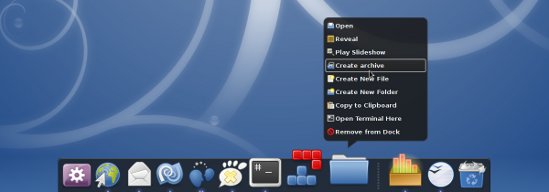Dock is one of the most popular graphical element, commonly used for interacting with currently running programs, launching/monitoring Applications,etc with a lot of Fun. The dock available in Mac OS X has become the most successful dock ever(Although it is different point that Mac is better in look only, not performance(Ubuntu is far better!)). it is usually implemented in the form of charming icons located at the bottom/top of screen with some funky effects.
Best Open Source Dock for Ubuntu : Docky
GNOME Do has created an open source equivalent of dock(in other words docky is a front end of Gnome Do) and its new name is ‘Docky’, “The Finest Dock that no Money can buy” ; for Linux based operating system like Ubuntu 11.04/10.10/10.04,Fedora,Open Suse,Debian or Linux Mint. Docky is free and open source Application for All common Desktops like GNOME and KDE. The latest stable version of docky is 2.0.7. So docky is the best free dock for Linux Distributions (Distros).
Ubuntu 10.10(Maverick Meerkat)/10.04 (Lucid Lynx) LTS(or earlier version) uses GNOME as their default desktop manager so you can install GNOME Do – Docky either from Ubuntu Software Center or Synaptic Package Manager or from terminal. If you are using Ubuntu 11.04 then then first you need to run GNOME Panel (The Classical Ubuntu Desktop) because Ubuntu 11.04(Natty Narwhal) uses Natty Desktop by default.
![]()
The snapshot you see above, was captured on Ubuntu 10.10, with some 3D effects enabled. The important features of Docky can be summarized as –
- Simple and powerful
- Easy to use with Nice GUI/Icons
- Drag and Drop(items to the docky) features
- Window Indicator
- Parabolic Zoom
- Smart Hiding Feature
- Advanced Window Management Features
More details on its features,visit the official website. Here is another generic look of Docky on most of the desktop –

Installing Docky on Ubuntu 10.04/10.10/11.04
Open ubuntu Software Center and search for ‘docky’ and click on install button to install. You can also install docky from command line by typing the command (Followed by your Login Password) mentioned below –
$ sudo apt-get install docky
